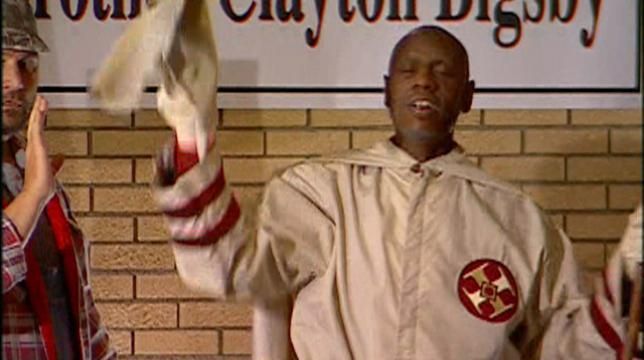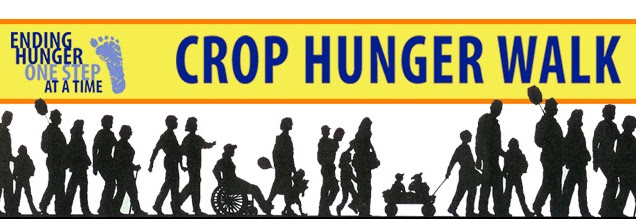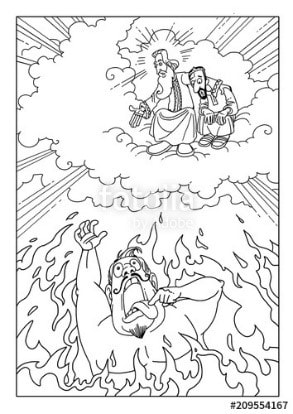|
“May the words of my mouth and the meditation of our hearts be acceptable to you, O Lord, my rock and my redeemer.” (Ps 19:14) A friend of mine is a Jewish guy who grew up in Manhattan and then moved up here to Massachusetts. He has a quirky sense of humour that I really enjoy. He’ll send me a YouTube clip of a guy like Lenny Bruce, for example. Once he sent me a clip of Dave Chappelle, who is an African-American comedian, playing a blind Klu Klux Klan leader. In the clip, his character was born blind. The family that adopted him didn’t want him to feel doubly-cursed by letting him know he was blind and black, so they never told him. He grew up hearing constant prejudice, and he learned it and accepted it 100%. This led him into the Klu Klux Klan. He became a leader because he didn’t know he was black and the others couldn’t tell because he was under the Klu Klux Klan sheet and hood. You hear him yelling all sorts of ridiculous things about blacks and Mexicans, and Asians and liberals, and after every statement he yells, “White power!” And the crowd erupts. The comedy, for the audience watching all of this, is the absurdity of a black man spewing all these prejudices again black men because he doesn’t know he’s a black man, and of all these bigots clapping for a black man because they don’t know he’s a black man. But Chappelle is making a point with his comedy. Prejudice is like this absurdity all the time. I shared a bit of this absurdity in October’s newsletter article about apple pies. More personally, there’s only one generation between me and my immigrant grandparents. My paternal grandparents came from Spain and my maternal from Poland. Both faced prejudice when they came here as different. They couldn’t speak English; their customs were unfamiliar; they were different. If I turned around and now acted with prejudice against the new newcomers, I’d be just like the black KKK member shouting “white power!” We all share similar stories in our lives or in our history. We hold more in common than we often want to admit, and when we attack others as different, we’re just mimicking Dave Chappelle all over again. Keeping Dave Chappelle in mind, let’s now talk about today’s Gospel. I already shared with the young people the important message of compassion that Jesus so powerfully conveys in the parable of the rich man and Lazarus. That was the point of the alarm clock and the snooze button. We can only postpone the gospel command to care for one another so long, and then eventually, at some point, we run out of time. It’s just too late. When we heard that Gospel parable, or when we listened in on the children’s sermon, I hope we gave some thought as adults to this morning’s offering for Neighbours in Need or the CROP Hunger Walk in just two weeks. These put the gospel words into gospel action. Neighbors in Need helps the church to spread justice and compassion in our communities, especially in those places where it is most lacking. Money helps, there’s no way around it. Money makes a huge difference in these sort of efforts. But in two weeks we can do a bit more. We can walk with others to show solidarity with those who have very little. When other people see these marchers, when they see us, they are confronted with the reality that we are trying to make a difference together. It’s more than making a donation. It’s the giving of our time and our steps so that others will become aware. The CROP Walk slogan is “We walk because they walk.” It refers to the need in many impoverished communities to walk for something as common as clean water. Our Walks bring us together by trying to empathize with their situation. Compassion like this is Jesus’ priority for us, but there are only so many opportunities. If we ignore them repeatedly, there’s the chance that it will become too late, so Jesus tells us today, don’t ignore them. But now I want to delve into another message that confronts us in Jesus’ parable. Lazarus dies and is rewarded with heavenly bliss. The rich man dies and is condemned to eternal flames. The message is be sure to be compassionate while you can because at some point it’s too late. But then some commentators go a step further and tell us that Jesus is also talking about heaven and hell. I think that imagery is only to make a greater impact on the sole message of compassion. The reason I say this, the reason I don’t think Jesus was really giving a description of sinners in eternal flames, is because if that were the case, it would be like the comedy of Dave Chappelle, about the black man making fun of black men. What do I mean? Please take a look again at your bulletin cover. The first picture shows the rich man ignoring the plight of Lazarus. His apathy is going to get him thrown into hell. In those merciless flames, the rich man begs Lazarus for a drop of water. That’s what’s going on in the second picture. From the glories of heaven, Abraham and Lazarus look out and see his torment – just like the rich man saw Lazarus every day at his gate. Abraham and Lazarus can hear the rich man’s plea. But they can’t do anything to help. God has created an afterlife where it is simply impossible. Think about this for a moment.
Can you sense the irony? The rich man is condemned for eternity because he would not help the suffering Lazarus during a single lifetime. God, if you push the analogy of this parable too far, won’t help all the people suffering in hell, forever. They can be seen and heard from heaven, but it has no effect on paradise. Does that sound right? Could you enjoy paradise while watching so many others wreathing in eternal flames? God was offended by the callousness toward Lazarus. Can the saints be just as callous toward the sinners in hell? Can God? It doesn’t make sense to me. A couple of weeks ago there was a story about a young man who was beaten up to the point that he was dying on the ground. All of these other kids around him videotaped it on their phones to remember and share, but no one did anything to help him, and he died. Everyone was repulsed by this callousness. It was disgusting. Are we going to imagine the same thing happens when the saints watch the sinners burn forever, and then still frolic in heaven? Do we really want to pin that message to Jesus and His gospel? I can’t. I think the message of today’s parable is be compassionate while we can, and that we should do it because it’s the right and righteous thing to do, not because God is less compassionate than we are. The Jesus of the parable is as compatible with the God of eternal flames as the blind black man leading the KKK rally. Let’s do what we can while we can, and may this be our prayer in Jesus’ name. Amen.
0 Comments
Leave a Reply. |
NewsFaith, love and chitchat. Categories
All
Archives
June 2024
Follow
|
|
SERVICE TIMES
Sunday 9:30-10:30am Children Sunday School 9:30-10:30am Nursery care available during worship DONATE Make a single or recurring contribution by clicking here |
FOLLOW
|






 RSS Feed
RSS Feed
